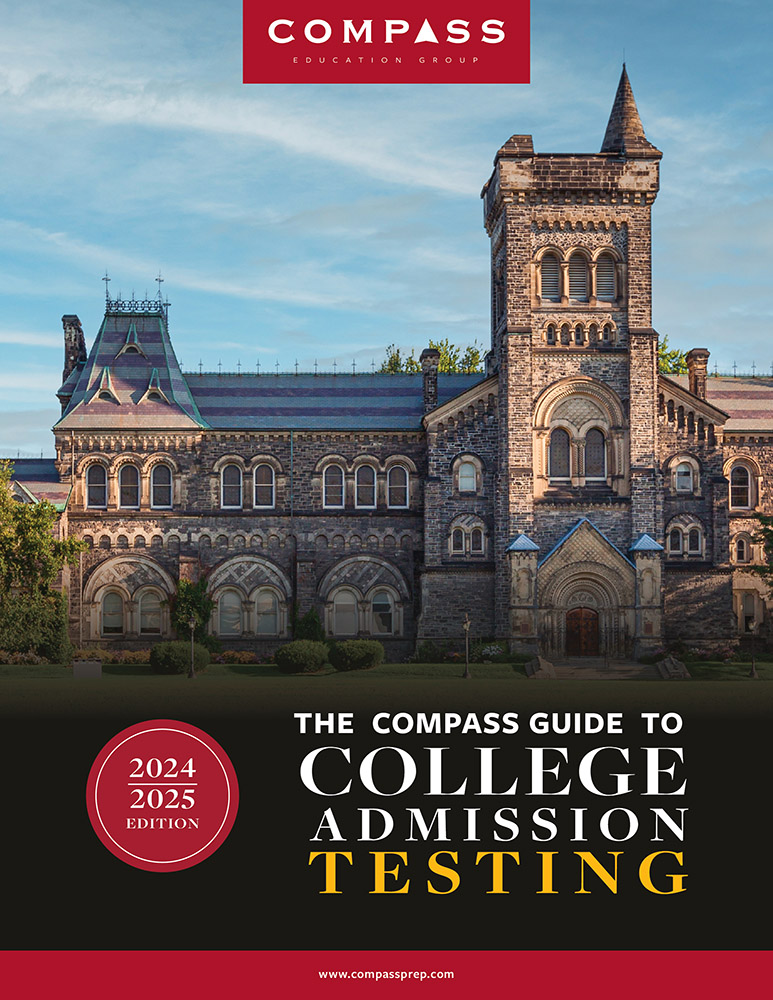 Warming temperatures remind students that the freedom of summer is right around the corner! But spring is also a crucial time to translate all of the knowledge gained throughout the school year into success on SAT Subject Tests and APs. Whether you’re a sophomore or junior, you may well be taking a class now that could be the key to a high Subject Test score. And if you’re enrolled in AP classes, you should definitely be thinking about creating a study plan to excel on the AP exam. APs aren’t just a feather in your cap; a 4 or 5 on an AP exam could allow you to forego some of those first-year classes at college—allowing you to focus on your major sooner!
Warming temperatures remind students that the freedom of summer is right around the corner! But spring is also a crucial time to translate all of the knowledge gained throughout the school year into success on SAT Subject Tests and APs. Whether you’re a sophomore or junior, you may well be taking a class now that could be the key to a high Subject Test score. And if you’re enrolled in AP classes, you should definitely be thinking about creating a study plan to excel on the AP exam. APs aren’t just a feather in your cap; a 4 or 5 on an AP exam could allow you to forego some of those first-year classes at college—allowing you to focus on your major sooner!
APs can be a strong indication of how well you will do in the college courses they supplement or replace. Perhaps because of this, College Board has increased its efforts to get more students—particularly economically disadvantaged students—enrolled in AP courses. If more students can be identified as having “AP potential” based on their PSAT scores, those students will be more likely to challenge themselves by taking an AP course. With the knowledge that they can succeed in a college-level course, they will be more likely to imagine themselves applying to college.
Equally importantly, College Board encourages schools to design AP courses to provide students with a scaffold for college courses, where students will be expected to read, study, and write in a far more autonomous setting. What better way to prepare for college than to expose yourself to the kind of high-volume work that will be expected of you, but with the safety net of a highly-structured high school setting?
And according to College Board, these efforts are working. According to College Board’s 2016 Annual AP Participation Report, AP course participation rates had increased 5% between the 2014-2015 and 2015-16 school years, and a 25% increase from five years ago.
In concert with this greater emphasis on the AP program, College Board has over the past several years been systematically updating its guidelines for AP courses and remaking AP exams in an effort to shift focus away from memorization and toward conceptual understanding.
Updates to the AP science courses led to developments in the histories and has continued with this year’s World History and Calculus updates. New courses have also been introduced: AP Computer Science Principles offers a multidisciplinary approach to understanding the basics of computing, while AP Capstone combines AP Seminar and AP Research to offer students the opportunity to develop research and argumentation skills.
You can read about how these changes have affected AP exam scores here.
The following chart lists this year’s new and updated exams:
| | |
|---|---|
| 2011-2012 | French Language and Culture |
| 2011-2012 | German Language and Culture |
| 2011-2012 | World History (course only) |
| 2012-2013 | Biology |
| 2012-2013 | Latin |
| 2012-2013 | Spanish Language and Culture |
| 2013-2014 | Chemistry |
| 2013-2014 | Spanish Language and Culture |
| 2014-2015 | Physics (split into Physics 1 and 2) |
| 2014-2015 | Seminar* |
| 2014-2015 | U.S. History |
| 2015-2016 | Art History |
| 2015-2016 | European History |
| 2015-2016 | Research* |
| 2015-2016 | Calculus AB & BC |
| 2015-2016 | Computer Science Principles* |
| 2015-2016 | World History |
| 2018-2019 | U.S. Government and POlitics |
*New AP Course
To date, College Board has revised most of the AP courses, but 2018-2019 will see the overhaul of U.S. Government & Politics. College Board has also promised changes to English Literature and Language in future years.
Feedback drove many of the changes: prior versions of AP courses were too broad and did not dive deep enough into the material. As a result, teachers were racing to cover every topic, and students’ understanding of the underlying concepts was suffering. To address this issue, College Board has worked to develop a course-specific “Concept Outline,” which clearly identifies the “big ideas” students should understand.
For example, a big idea for Calculus is “limits.” These big ideas are then broken down into “enduring understandings.” One example for limits is “The concept of a limit can be used to understand the behavior of functions.” From understandings, College Board draws such “learning objectives” as “express[ing] limits symbolically using correct notation.”
While it may be impossible to test a student on “limits,” it is reasonable to test her on the correct symbolic notation of limits. It can be helpful to think of these differences as that of concept and application. We often find that student have no problem with the application of rules or processes but fail to fully understand the concept they’re applying. They run into trouble when a question requires them to step outside of their series of memorized steps. Tutoring can often help bridge these divides, allowing a student to work from process to concept and back again.
What many parents don’t realize is that AP courses don’t share a common curriculum across schools. No single College Board-approved AP Calculus book exists; however, the organization does provide curricular expectations and a list of example college-level textbooks based on input from college faculty. In practice some textbooks may have gaps: not every enduring understanding or learning outcome defined by AP will be present in every college text book.
To help high school faculty find and address these gaps, College Board is now working with Learning List, a resource review service, to vet course books and identify how well they meet AP’s standards. Learning List is a brand new product, and it remains to be seen whether schools will come to rely on it or whether teachers’ own knowledge of the course and exam will continue to direct textbook decisions.
Regardless, even the strongest students will have gaps in knowledge, whether at the granular or conceptual level; a strong tutor can help to identify and fill those gaps. Contact a Compass Director today to learn more about how we can match you with an appropriate tutor for your specific testing needs.

